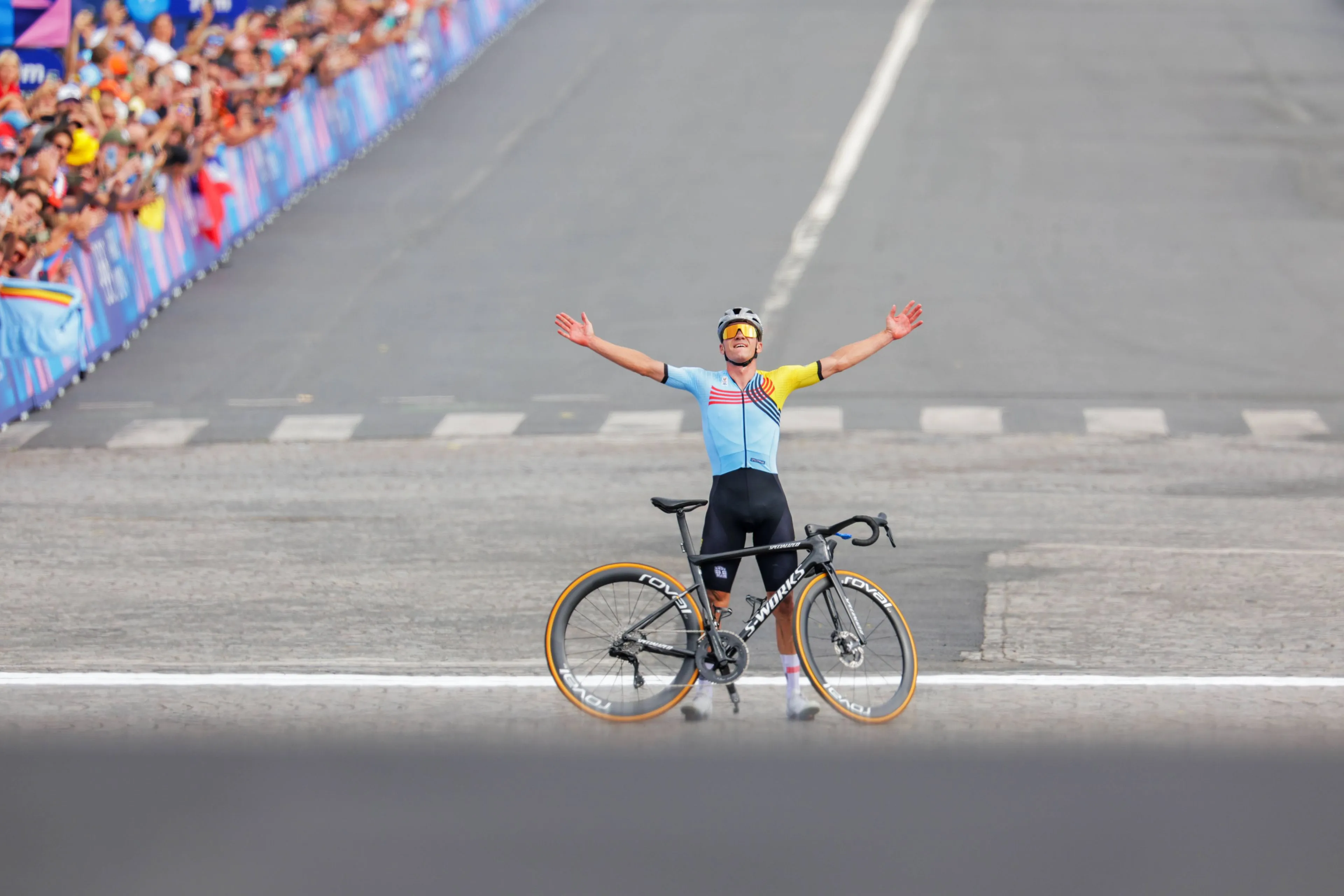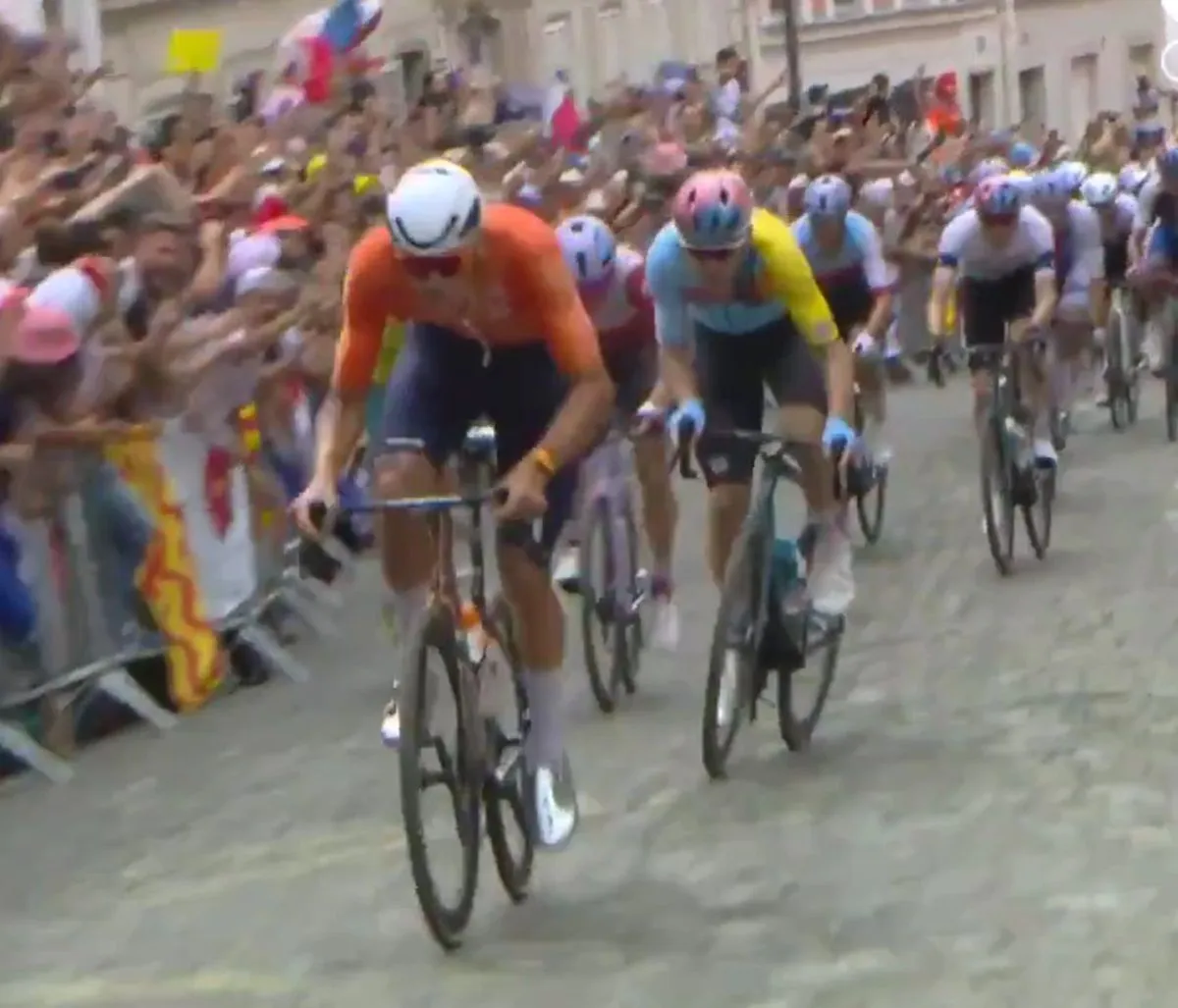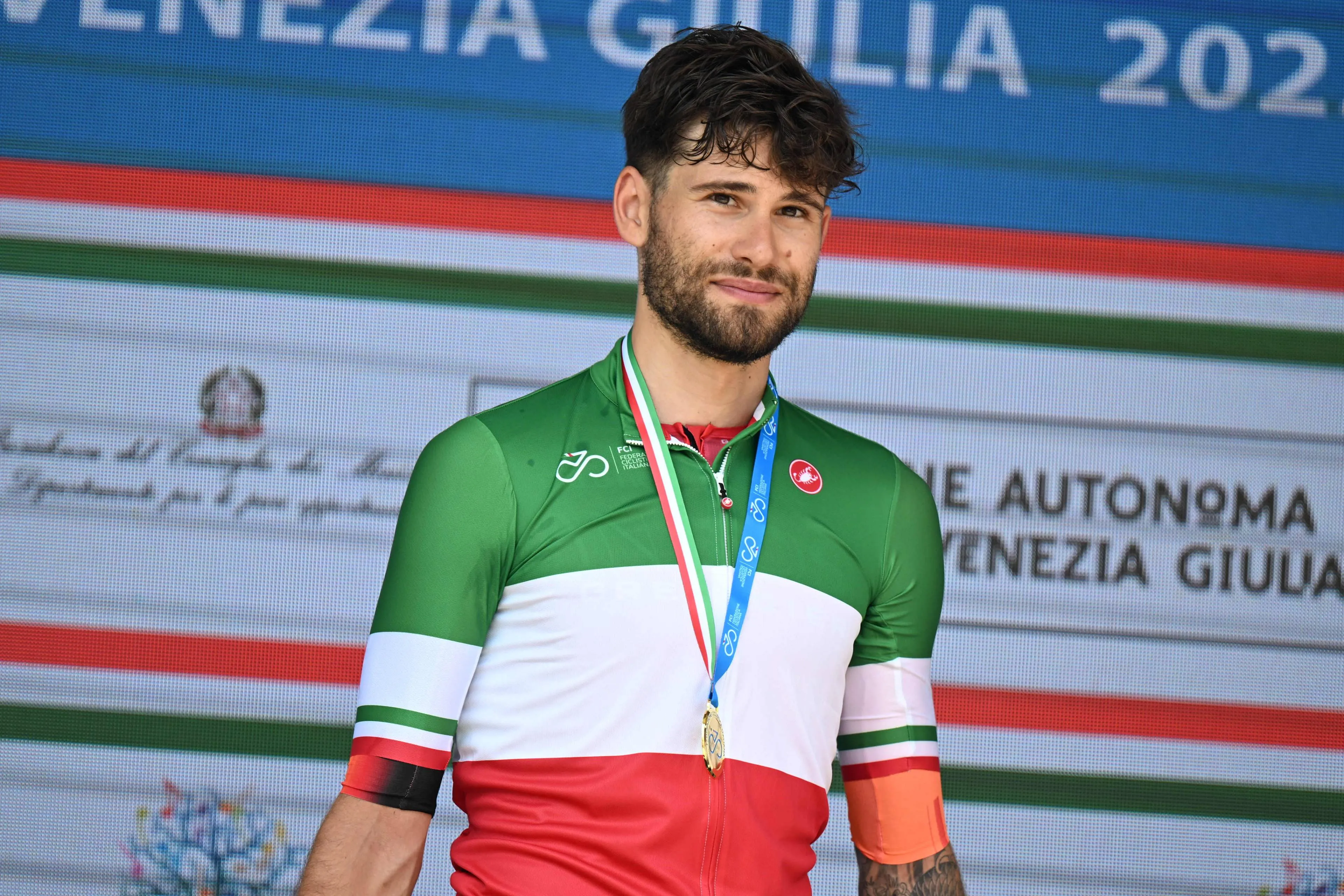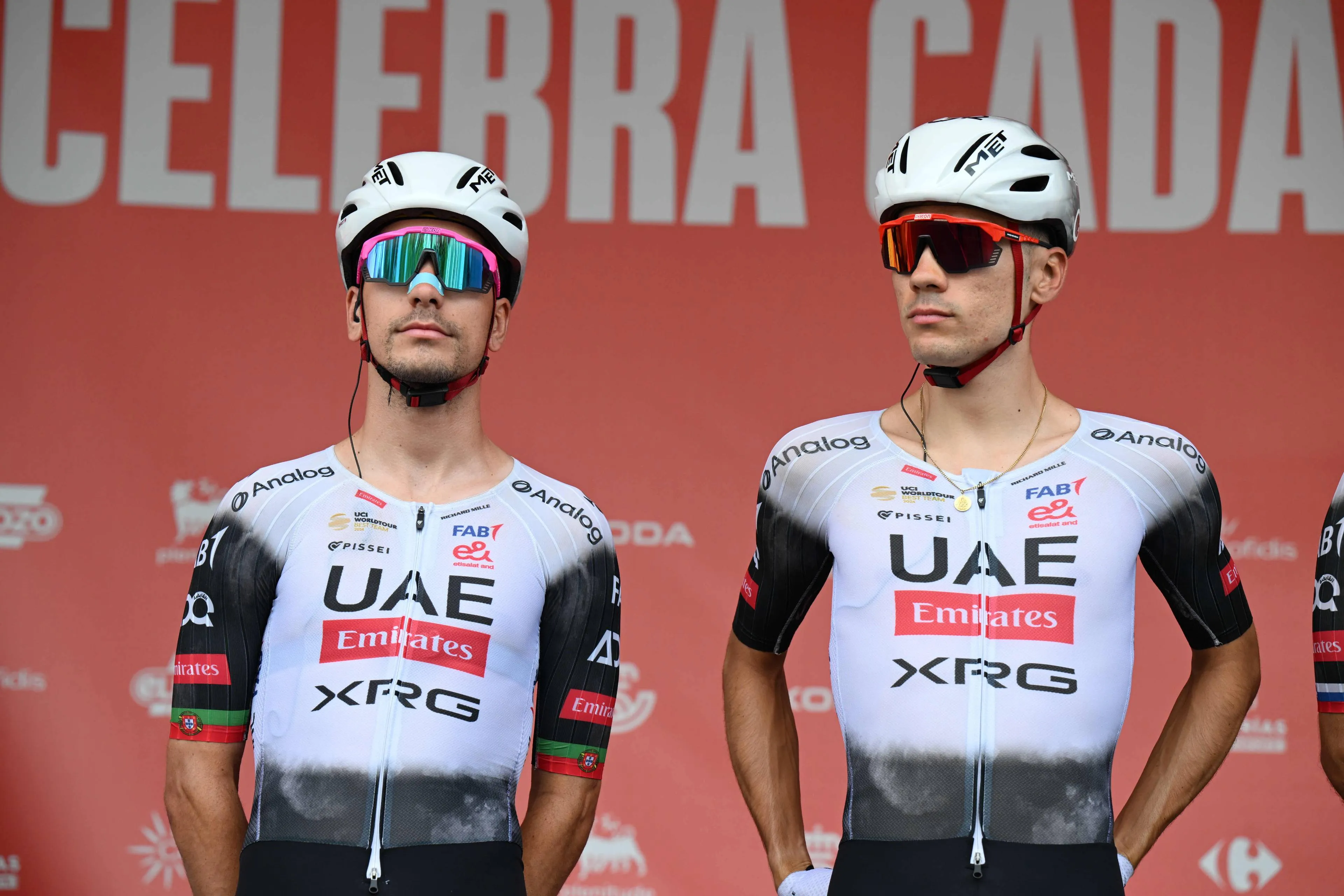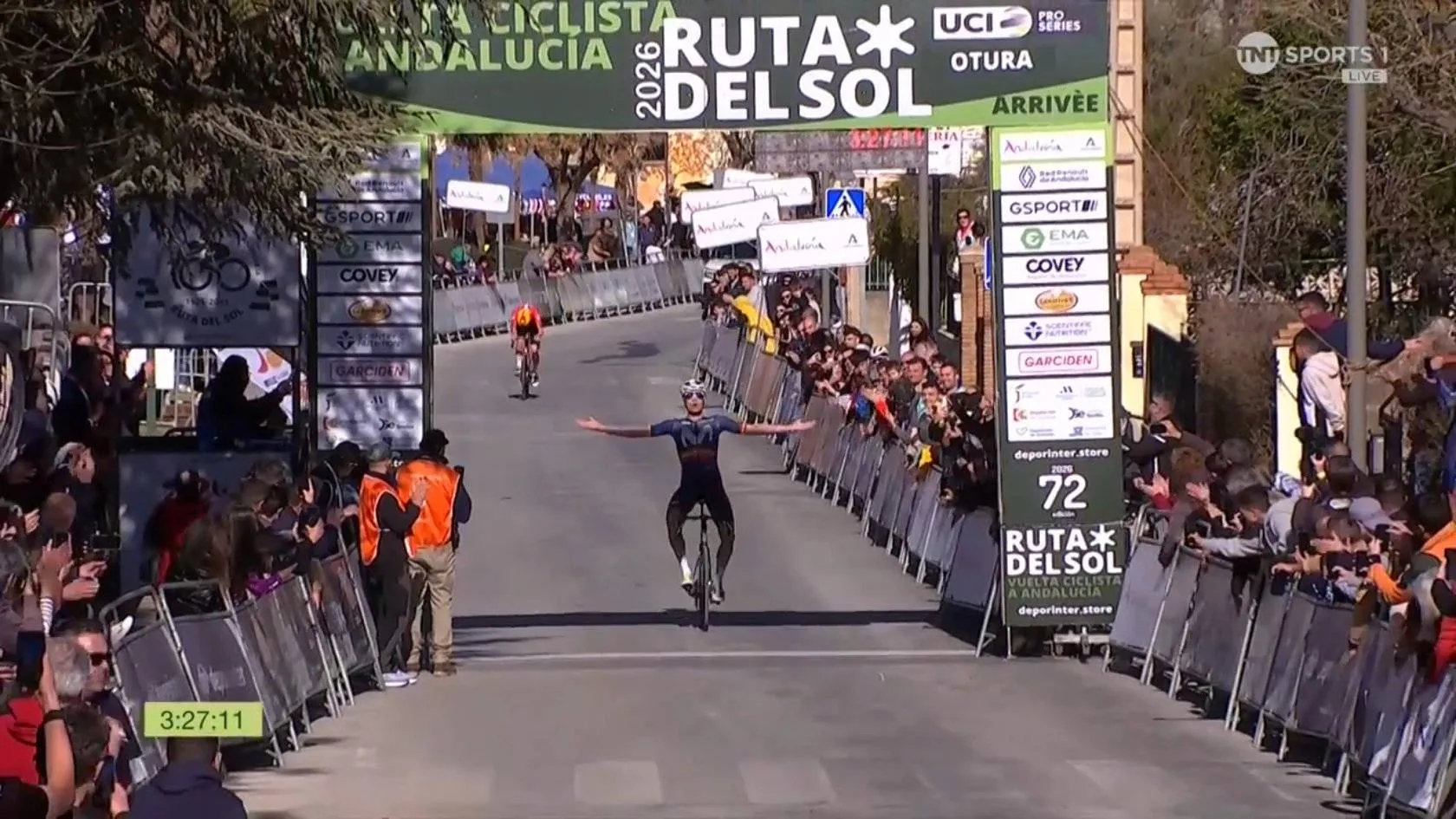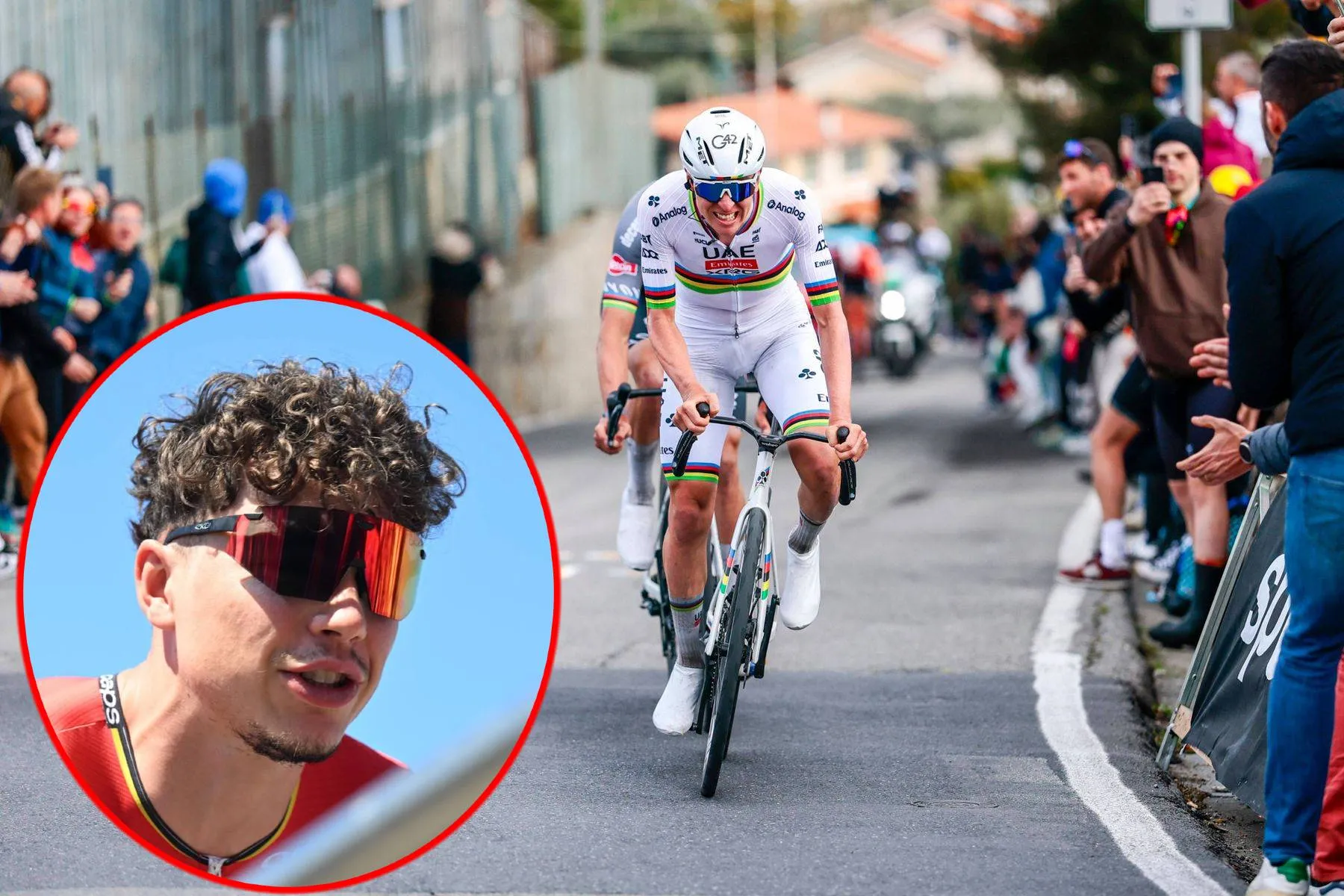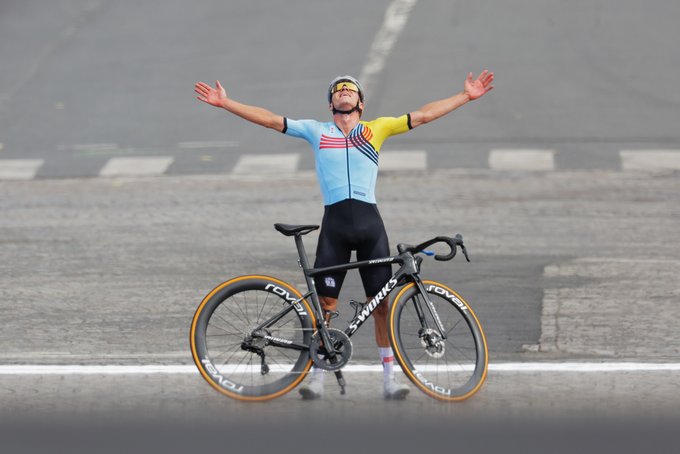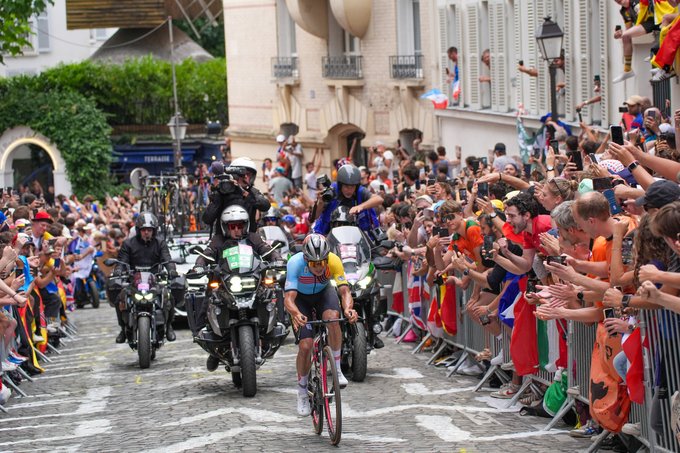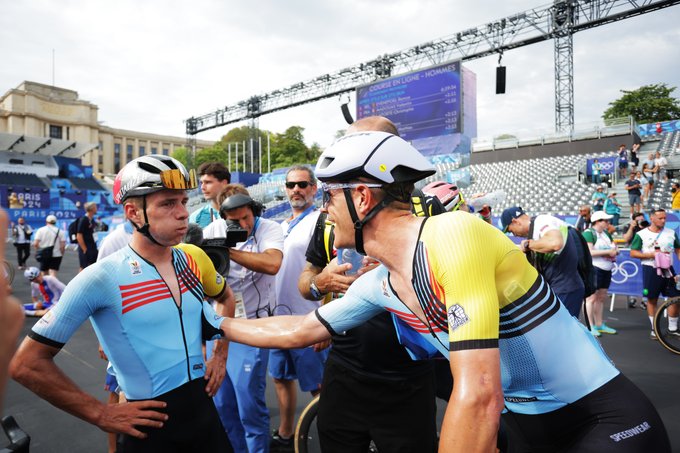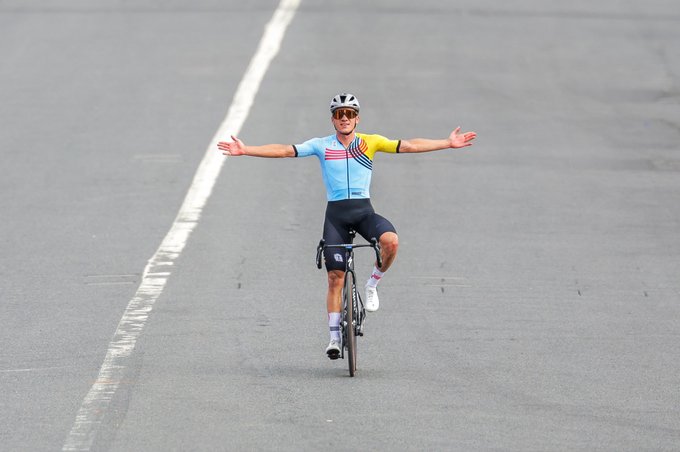"We are writing history as a team" - Belgian national coach over the moon with Remco Evenepoel's double Olympic triumph
CyclingSaturday, 03 August 2024 at 19:23

Belgium have won both gold medals in the men's events at the Olympic Games, and both have been taken by Remco Evenepoel, the first male rider to do so in the history of the sport. Whilst at times under pressure, the team managed to pull out of the race with the perfect result after a massive performance by the 24-year old who crossed the line in Paris solo.
"We are writing history as a team. It is also hard for me to believe that I am allowed to be part of this," Sven Vanthourenhout told Wielerflits. "It is something we should be very proud of, I think. What I am also very proud of - and I already said this yesterday to those four men - is that I was here with them again. And that I have a staff that I can count on." The team initially had to put Tiesj Benoot on the chase of the day because of the large gap taken by the front riders, not an ideal situation. Over the hills before the final circuit they couldn't put the rest under pressure and in fact saw plenty riders enter the decisive phase of the race still with a lead.
Read also
"That allowed us to bluff a bit in the first hundred kilometers. We said: we are definitely not going to be the first. But at some point you shouldn't let your leaders get nervous. Then we let Tiesj ride along, but in such a way that the rest would feel it too. Half the peloton had to be at their wits' end. Tiesj did a great job," he says. Then, it was up to the leaders to put in the watts required to fight for the medal.
"Nobody, absolutely nobody in the world can ride up a hill like Montmartre like Mathieu van der Poel. He is a phenomenal athlete who can make an effort that would normally make everyone sit up," he says. But not Wout van Aert, who was the only rider managing to match him the first two times up the ascent. "We talked about it extensively. Wout said: 'I'm going to try, I have nothing to lose. I'm the only one of the four who should be able to do that, or at least come close. So I take the responsibility to do that'."
Van Aert responded to the Dutchman's first attack and didn't contribute much to the move, which allowed Evenepoel to come back and then attack off the front of the group, which eventually resulted in a victory for the team. Evenepoel dropped everyone he caught up with in the final 38 kilometers, whilst van Aert didn't obtain a result due to a late crash.
"We made Remco's point later. And that's where he eventually rode away. That was clear to everyone. It all seemed easy, but you need the quality of the guys to pull this off," he concluded.
Read also
claps 3visitors 3
Just in
Popular news
Latest comments
- Yes, the guy is no fluke. Even if he fails to improve over the next 15 years he’ll do damage. That young blood is going to keep the establishment working hard.Mistermaumau19-02-2026
- This excuse is harmless, just quaint and amusing. The excuse I really disliked was when he accused a mechanic of improperly adjusting his saddle, endangering the mechanic's job: blaming others for your own limitations is a serious matter.
 maria2024202419-02-2026
maria2024202419-02-2026 - ok so this is impressive - I trashed this guy all winter, get a pro win before the anointing. against a quality field. And Onley and Riccitello look good too. fun to see young blood.mij19-02-2026
- Minor flaws.... thats like suggesting Genghis Khan was a bit aggressive with other countriesslappers6619-02-2026
- Then you carry on if that's what makes you happyslappers6619-02-2026
- Fabio cannot catch a break.mij19-02-2026
- OK, today is the "air conditioner"... yesterday was a cramp... on saturday a bee will sting him in his tongue... his tongue will swell up and mustafa gets no oxygen. Because of his swollen tongue, Remco won't be able to give us a new excuse. Remco and the spanish rat Ayuso should be on the same team. They both have a ton of excuses and both of them are liars. Ad acta.Mou-Cro-HR19-02-2026
- Florian Lipowitz is secretly happy
 Rafionain-Glas19-02-2026
Rafionain-Glas19-02-2026 - The crucial thing to remember is that Remco was broken by the pace of Gall and Tiberi, not Del Toro's. Remco's excessive antics are because he doesn't want anyone to think that he's 'genuinely' struggling. You can always say 'he got cramps' because 'his preparation didn't go to plan', but the thing is that there is a limit to the number of excuses and exceptions that there can be. Eventually everyone just accepts that he's reached his ceiling on the climbs.
 Rafionain-Glas19-02-2026
Rafionain-Glas19-02-2026 - Bahraini suspicious..Santiago19-02-2026
Loading
🥇🇧🇪 Remco Evenepoel 🇧🇪🥇 Your @Paris2024 Men’s #CyclingRoad Olympic Champion 🤩 #Cycling #OlympicCycling #Paris2024
Write a comment
